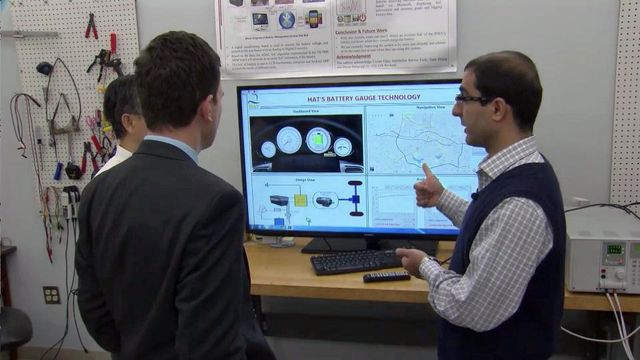NCSU researchers work on better estimates for electric car batteries
Drivers know a dead car battery is an inconvenience, but for most it doesn't happen very often. Those with electric cars, who have to recharge almost daily, face that risk more often.
Posted — UpdatedResearchers in Raleigh are trying to make it easier for drivers of electric cars to know when they're low on juice.
Bruce Moore is one of those electric car drivers. He loves his all-electric Nissan Leaf. Before he got the car, he studied his driving habits to make sure the 100-mile range between charges wouldn't be a problem.
“I was doing six or seven trips a year where I was going more than 100 miles, so I thought, that's good,” said Moore.
Drivers of electric cars have to plan trips around that range limitation. Electric cars have a display to alert drivers when they need to recharge, but many owners say they aren't accurate.
Researchers at North Carolina State University are trying to change that.
“We are getting the data off this battery off a microcontroller,” researcher Habiballah Rahimi said.
They are developing a more accurate estimate of a battery's range.
This new software can analyze a planned route by looking at the topography, weather conditions and congestion -- all are factors that can affect an electric car's range.
“When you put in your destination, we can accurately predict how much charge you will have when you get there,” Eichi said.
The N.C. State software is about 30 percent more accurate than what's available now.
Moore says better range estimates would give him peace of mind.
“I'm enthused about it because at least you won't have to go according to the guess-o-meter,” Moore said.
Researchers say this new software likely will be available as a phone app in the future.
Eventually, they hope it will be built into the navigation systems on electric cars.
• Credits
Copyright 2024 by Capitol Broadcasting Company. All rights reserved. This material may not be published, broadcast, rewritten or redistributed.





